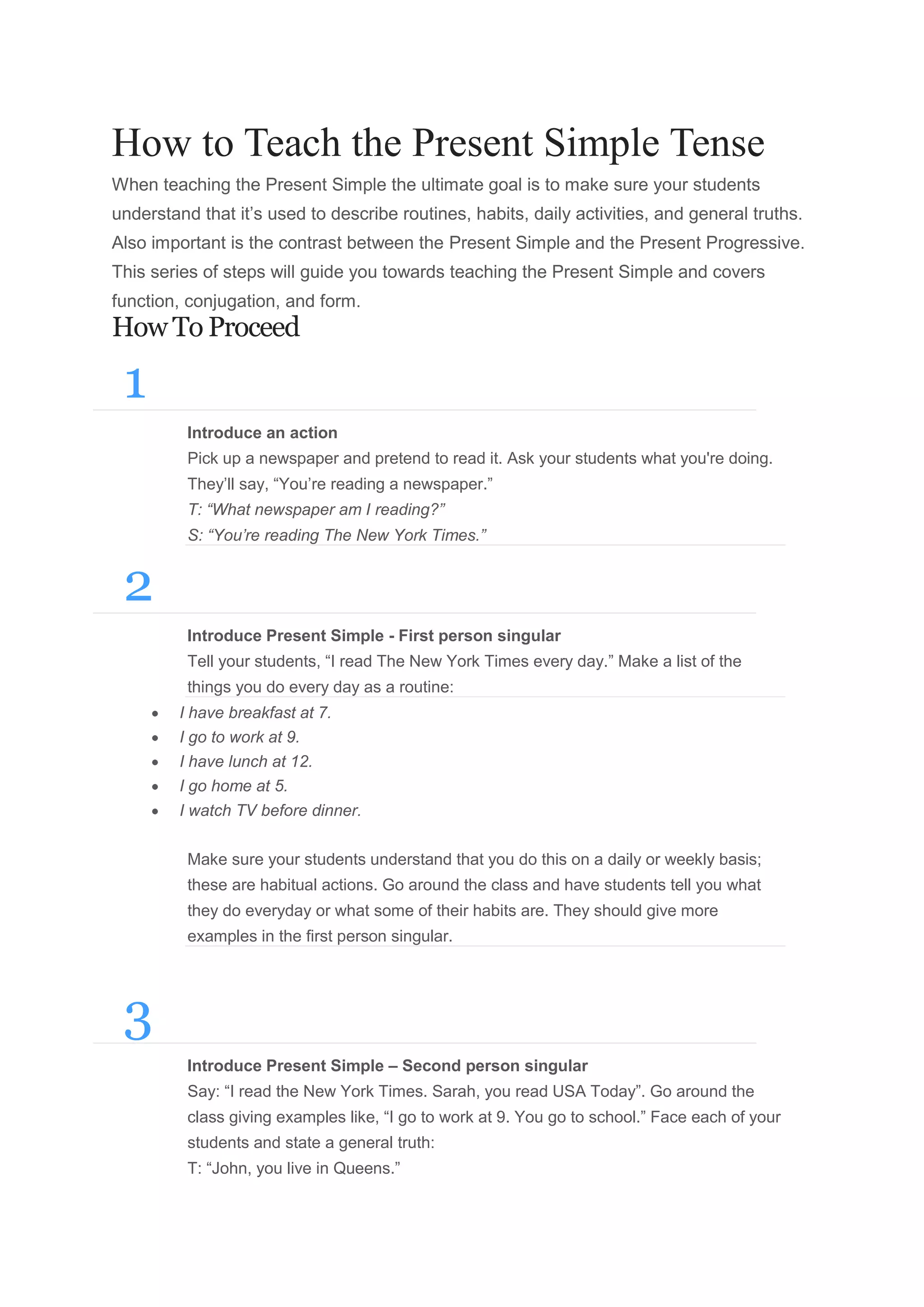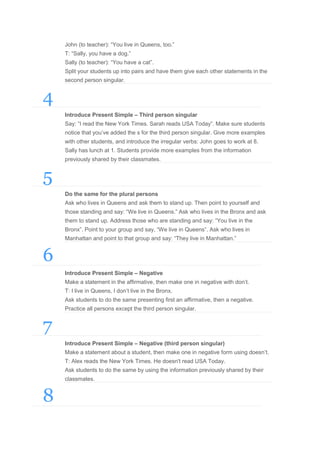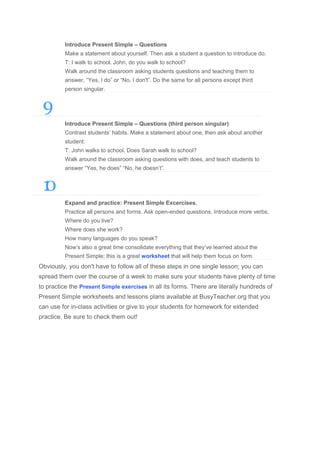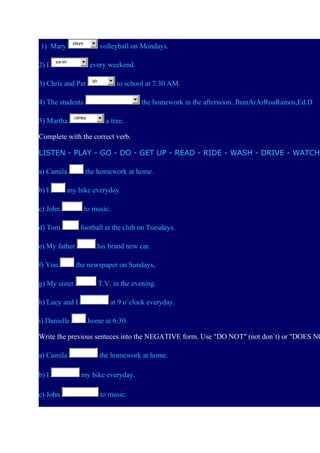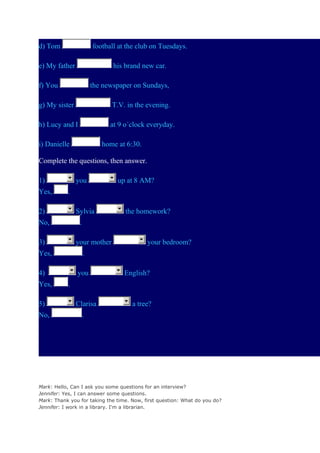1) The document provides guidance on teaching the present simple tense to students by outlining 10 steps to introduce the key elements of the tense like function, conjugation, affirmative and negative forms, and questions.
2) The steps include introducing actions using examples, explaining daily routines and habits using the first, second, and third person singular forms, and practicing plural forms, negatives, and questions.
3) Providing additional exercises allows students to practice and expand their understanding of the present simple tense in all its forms.
